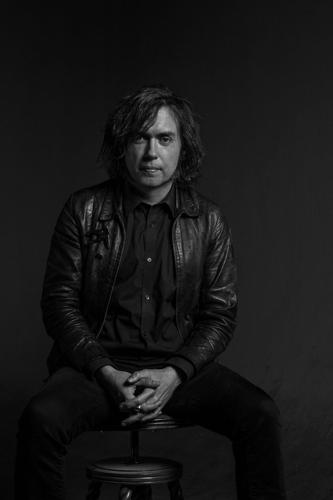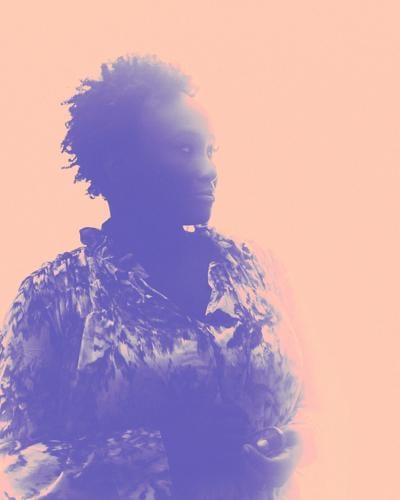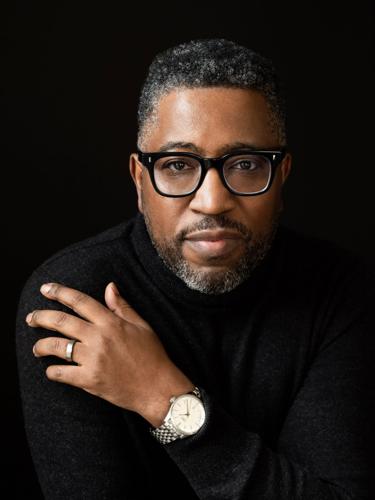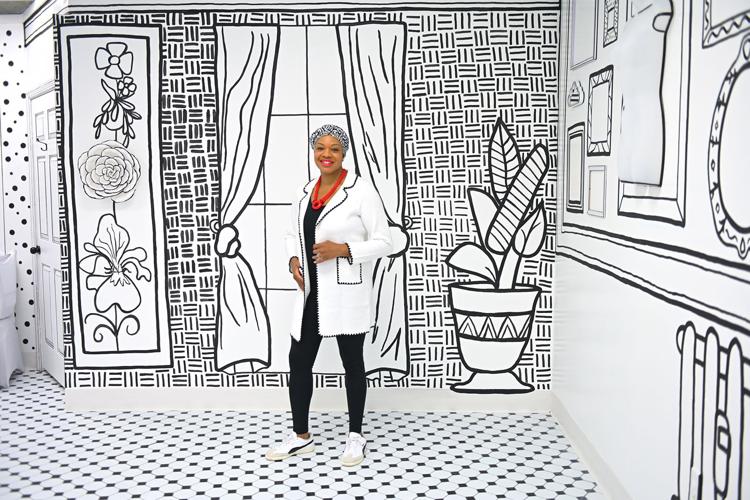It’s a little weird that Nashville doesn’t have a poet laureate. Our neighbors in Hendersonville and Murfreesboro do. Tennessee has a state poet laureate.

Major Jackson
But Nashville doesn’t, even though the city is becoming as much a destination for writers as musicians. It hosts the popular Southern Festival of Books annually. The Porch is a small but mighty nonprofit that offers writing classes year-round and has landed prominent guests for its fundraisers, including U.S. poet laureate Ada Limón.
Nashville's Metro Council did once recognize a poet laureate. A 2006 resolution honoring the legacy and accomplishments of Harriette Bias-Insignares, a professor at Tennessee State University, named her the city’s first poet laureate and appointed her as the artist-in-residence of Nashville public schools for a two-year period.(Bias-Insignares, who died in 2015, was also the first Black poet named Ambassador of Letters to the state of Tennessee.)
The city maintains its youth poet laureate program, established in partnership with nonprofit Southern Word in 2016. But it never reestablished its non-youth counterpart.
Even with all the talent and events and great bookstores in town, it feels like something is missing.
Major Jackson, the author of six poetry books and a professor at Vanderbilt University, says a poet laureate contributes a lot to the community, capturing the moments of a community’s life in a poem and showing young people the “social function of literature” in our daily lives. A poet laureate may advocate for the art form, and also “gives voice to the will, the desires, the observations, the fears of the people,” he says.
Jackson also notes that Nashville has a long and complicated history with poetry. Vanderbilt graduate Robert Penn Warren was one of the earliest U.S. poet laureates in 1944. He was also a member of two overlapping and influential literary groups in the 1920s and ’30s — The Fugitives and The Southern Agrarians. Both collectives emphasized conservative, Southern traditionalism alongside certain aesthetic styles, but it wasn’t exactly a monolith — Warren evolved into an advocate for integration while fellow Fugitive Donald Davidson remained a staunch segregationist.

Ciona Rouse
The Southern literary scene thankfully grew more diverse, and these days in Nashville you can find poetry slams, literary pop-ups and even some multimedia productions — like the Nashville Ballet’s adaptation of local poet Caroline Randall Williams’ book Lucy Negro, Redux.
“Poets keep finding their way here and then creating their own communities,” says local poet Ciona Rouse. Rouse came to Nashville 22 years ago, and has been setting up events, readings and more since her arrival. Many new-in-town poets get pointed her way, and she can name off quite a few poetry collectives and literary organizers in town. She thinks a poet laureate should be someone who helps create spaces for people to engage with poetry.
Rouse is working on a new literary space herself. Her goal for 2025 is to open a poetry-centric bookstore and bourbon bar called Bard’s Towne, and she has hosted recent pop-up reading events at Nelson’s Green Brier Distillery and the Frist Art Museum under the name.

Chet Weise
Chet Weise, editor-in-chief of Third Man Books, also has experience building a literary community. Drawing on his years in the DIY punk rock scene, he set up a showcase called Poetry Sucks circa 2012. Participants in the series later contributed to Third Man Records’ first book, a poetry anthology called Language Lessons.
Weise believes a poet laureate should not be thought of as “the best poet” in town. Instead they should be “an ambassador of poetry,” someone “able to communicate the importance and usefulness of poetry to the community.”
Stephanie Pruitt Gaines, a local poet and owner of The Creativity Bar — a soon-to-open crafts space and artsy gift shop in Donelson — expresses some concerns about the city’s ability to manage the poet laureate role. After all, the Metro Arts Commission stumbled its way through a pitched controversy over how it distributes grants to artists and nonprofits.

Stephanie Pruitt Gaines
She also worries about sparking tensions between certain styles of poets in town, or that the city would be validating certain traditions over others. Still, despite the reservations, she notes it would be nice to have the city affirm the importance of poetry.
“What excites me about a poet laureate is that it reminds us that language can help us acknowledge important moments and important places,” says Pruitt Gaines, adding that poets are particularly good at processing big ideas into just a few lines.
Jackson acknowledges there can be tension between academic and performance poets — the “page versus stage” divide — but he doubts the public would focus on those distinctions. That said, he does think short two-year terms would work well in a city with a literary community as diverse as Nashville’s.
“We are a poetry town,” says Rouse, “so why not play that up?”
Sources tell the Scene that the mayor has taken poetry classes at The Porch. With that in mind, the Scene reached out to Mayor Freddie O’Connell’s office to gauge his interest in establishing a poet laureate.
"We have a youth poet laureate through a wonderful partnership with Southern Word," O'Connell says in a statement, received just after the print version of this story went to press. "I've been so impressed by emerging young voices that I haven't seriously considered adding a separate laureate process. I wouldn't rule it out, but as we've looked to support the arts and artists, we have a lot of work already underway. I'm excited to get a chance to hear our newest youth poet laureate, Violet [Hansen], who was just announced after this years State of the Word."
Unsurprisingly, the poets who spoke with the Scene agree that poetry is important — Weise calls it “lifeblood.” Jackson calls it “the most democratic” art form.
“Everyone has access to their feelings and their emotions,” says Jackson. “All you need is a paper and pen.”
Correction, Jan. 14: A previous version of this story overlooked the resolution recognizing Harriette Bias-Insignares as the city’s first poet laureate. We regret the oversight.








